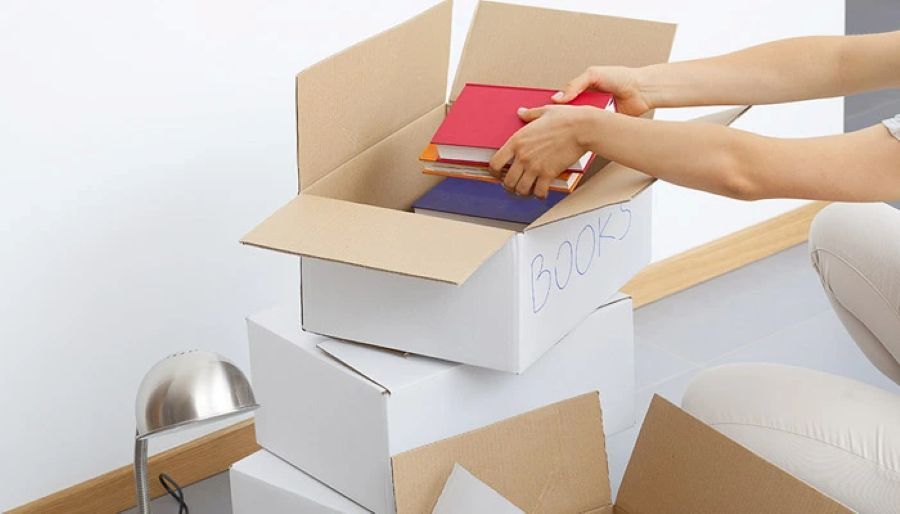How to Pack for a Move Without Getting Overwhelmed?
You can pack for a move without getting overwhelmed by breaking the task into small, manageable steps and starting early. The key is to create a simple plan, tackle one room at a time, and focus on progress rather than perfection.
Moving is one of life's most stressful events, but packing doesn't have to be the nightmare you imagine. Research shows that those who move frequently experience higher stress levels than those who don't, and 74% of people have felt so stressed they've been overwhelmed or unable to cope in the past year. This guide will show you how to pack smart, stay calm, and turn this big task into something you can actually handle.
Why Packing Feels So Hard
Let's be honest about why packing feels like climbing a mountain. Moving is an emotional journey with distinct stages: excitement, anxiety, grief, adjustment, and finally, feeling at home. Your brain sees all your stuff at once and panics. You look around and think, "How did I get so much stuff?" It's like your closet threw up all over your life.
The truth is, packing overwhelm comes from three main things:
- Everything looks huge when you see it all at once
- You don't know where to start
- You're already stressed about the move itself
But here's the good news: you can fix all of these problems with the right approach.
Start Early (Like, Really Early)
The biggest mistake people make is waiting too long to start. We recommend planning your move at least eight weeks in advance. Think of it this way: would you rather pack for 30 minutes each night for two months, or try to pack your entire life in one weekend?
Your 8-Week Timeline
8 Weeks Before:
- Start decluttering room by room
- Get moving quotes fromlocal movers
- Order packing supplies
6 Weeks Before:
- Pack items you won't need (holiday decorations, books, off-season clothes)
- Use up food in your pantry
- Start using yourmoving checklist
4 Weeks Before:
- Pack most rooms except kitchen, bathroom, and bedroom
- Arrange forpacking services if needed
- Confirm moving details
2 Weeks Before:
- Pack everything except daily essentials
- Start living out of a suitcase
- Prepare your first-day survival kit
The Room-by-Room Game Plan
Don't try to pack your whole house at once. That's like trying to eat an entire pizza in one bite. Instead, pick one room and focus only on that space.
Start With the Easy Wins
Begin with rooms you use least. Your guest room, attic, or basement are perfect starting points. These spaces usually have items you won't need before moving day.
The One-Box Rule
Put three or four boxes in each room. Fill them with items you know you won't need before the move. This gets you started without making any room feel torn apart.
Kitchen Strategy
The kitchen is tricky because you need to eat until moving day. Start by packing:
- Fancy dishes you only use for holidays
- Extra pots and pans
- Appliances you rarely use
- Cookbooks
Keep one set of dishes, one pot, one pan, and basic utensils until the last day.
Bedroom Basics
For bedrooms, pack everything except:
- One week of clothes
- Daily toiletries
- Medications
- Phone chargers
Use wardrobe boxes for hanging clothes or grab some trash bags, cut a hole in the bottom, and slide hangers through. Easy and cheap.
The Declutter-First Method
View packing the house as a chance to rid yourself of all the clutter (emotionally and physically) you have collected that doesn't need to follow you in the future. Before you pack anything, go through each room with three bags:
- Keep - Things you definitely want in your new home
- Donate - Items in good shape that someone else could use
- Trash - Broken or worn-out items
This step alone will cut your packing time in half. Why pack and move things you don't even want?
Essential Packing Supplies
Don't cheap out on supplies. Bad boxes break, weak tape fails, and then you're dealing with broken dishes and scattered clothes. Here's what you need:
The Must-Have List
- Boxes in different sizes (more medium boxes than large ones)
- Packing tape (get the good stuff, not dollar store tape)
- Bubble wrap for fragile items
- Packing paper or clean newspapers
- Markers for labeling
- Trash bags for donations and garbage
Smart Supply Tips
Order 10% more supplies than you think you need. Running out of boxes on packing day is not fun. Small boxes work better for heavy items like books. Large boxes should hold light stuff like pillows and clothes.
The Stress-Busting Labeling System
Label everything clearly. Not just "bedroom stuff" but "bedroom - winter clothes and extra blankets." Your future self will thank you when you're looking for something specific.
Color-Coding Made Simple
Give each room a color:
- Red for kitchen
- Blue for bedroom
- Green for living room
- Yellow for bathroom
Put colored tape or stickers on boxes. Themoving company can put boxes in the right rooms without asking questions.
Pack Your Survival Kit
Create a "first day" box with everything you'll need when you arrive. Include:
- Paper towels and toilet paper
- Basic cleaning supplies
- Scissors and a box cutter
- Phone chargers
- Snacks and water
- First aid kit
- Flashlight
- Trash bags
Keep this box with you, not in the moving truck.
Managing the Emotional Side
Moving represents a striking life shift, disrupting routines, social connections, and one's sense of place. It's normal to feel sad, anxious, or overwhelmed. Here's how to handle these feelings:
Give Yourself Grace
Perfect packing doesn't exist. Some boxes will be messy. Some items will get mixed up. That's okay. The goal is to get your stuff to your new home safely, not to win a packing contest.
Take Breaks
Pack for 2-3 hours, then stop. Do something fun. Watch a movie, go for a walk, or hang out with friends. Packing marathons lead to burnout and mistakes.
Ask for Help
Don't try to do everything alone. Friends and family usually want to help. Make it fun by ordering pizza and playing music. Many hands make light work.
Common Packing Mistakes to Avoid
Learning from others' mistakes can save you time and stress:
Don't Pack at the Last Minute
One of the most common packing mistakes (and the worst one you can make) is packing on the day of the move. This leads to panic, poor packing, and forgotten items.
Don't Make Boxes Too Heavy
A box should weigh no more than 50 pounds. If you can't lift it easily, it's too heavy. Heavy boxes break and hurt backs.
Don't Forget to Pack Essentials Separately
Pack a suitcase like you're going on a 3-day trip. Include clothes, toiletries, and medications. Keep this with you, not in the moving truck.
Don't Skip the Inventory
Make a list of what goes in each box. It seems like extra work, but it helps if something gets lost or broken.
When to Call in the Professionals
Sometimes the smart move is getting help. Consider professional packing services if:
- You're short on time
- You have lots of fragile items
- You're dealing with a long-distance move
- You're physically unable to pack everything yourself
Professional packers work fast and know how to protect your belongings. They also have insurance if something gets damaged.
The Final Week Strategy
With one week to go, you should be almost done packing. Live out of a suitcase and keep only absolute essentials unpacked:
- One set of sheets and blankets
- Three days of clothes
- Basic toiletries
- Essential medications
- Phone chargers
- Important documents
Moving Day Prep
The night before the move:
- Pack your essential items in a clearly marked box
- Charge all your devices
- Set aside cash for tips
- Get a good night's sleep
Remember,Edmonton movers work best when they can focus on moving, not answering questions about where things go.
Building Your New Home Routine
A study published in the Journal of Environmental Psychology found that it takes an average of 3 to 6 months for people to develop a sense of attachment to a new home. Be patient with yourself as you settle in.
Start unpacking the essentials first - kitchen basics, bedroom, and bathroom. Then tackle one room at a time, just like you packed. Don't try to unpack everything in one day.
Final Thoughts
Packing for a move doesn't have to be a nightmare. The secret is starting early, breaking the job into small pieces, and focusing on progress, not perfection. Remember that moving is usually about a decision to seek a better environment, a new start or an adventure.
When you approach packing with a plan and realistic expectations, you'll find it's much more manageable than you thought. Take your time, ask for help when you need it, and celebrate small victories along the way.
Ready to make your move stress-free? ContactLast Stop Moving for professional moving services that make your relocation smooth and simple. Your move ends with us!



